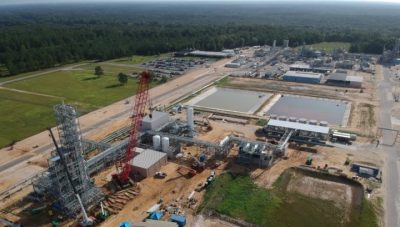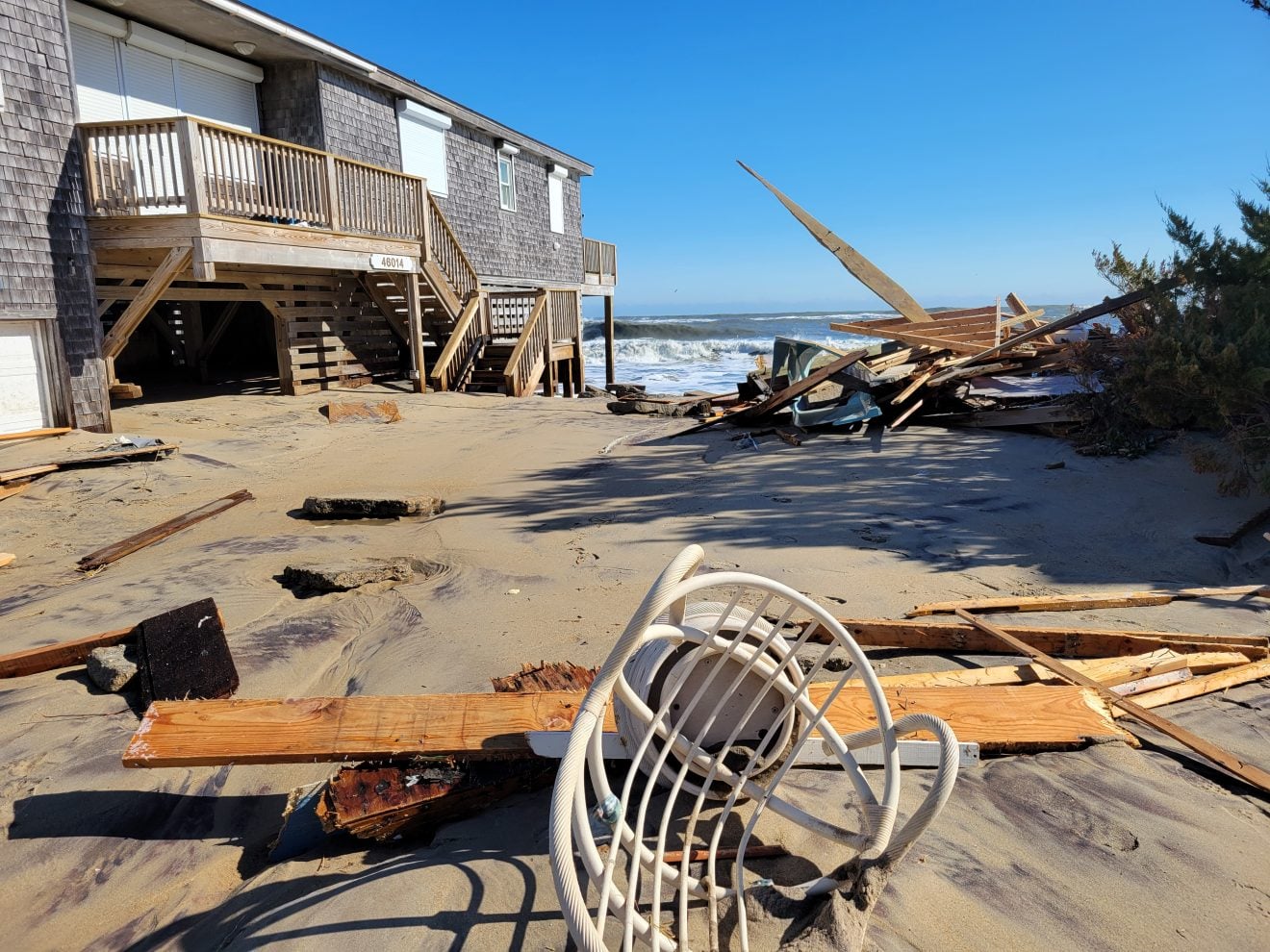
The Bladen County-based chemical company known for releasing toxins into the Cape Fear River is looking to increase its manufacturing capacity, but opponents say that instead of expanding, the plant should be shut down.
Chemours Co., a Dupont spin-off, announced its expansion plans Tuesday, citing a critical economic demand for its products. The company says the expansion at its Fayetteville Works plant will not increase the overall fluorinated organic compounds or greenhouse gases emitted from the site.
Supporter Spotlight
Cape Fear River Watch Executive Director Dana Sargent laced into the proposal and the company’s “Chemours Neighbors” marketing campaign.
“Chemours claims they’re good neighbors; we think the neighborly thing to do after contaminating the drinking water for 510,000 and counting would be to shut the plant down; instead, they have the audacity, or more accurately, the depravity, to try to make even more money off of poisoning us,” Sargent told Coastal Review in an email Wednesday.
The company has scheduled two information sessions later this month to give the public a chance to hear the company’s expansion plans and its strategy to control emissions.
The first session is set for 5 to 7 p.m. Tuesday, Sept. 20, in the Bladen Community College Auditorium in Dublin, and the second is to take place from 5 to 7 p.m. Wednesday, Sept. 21, at the Leland Cultural Arts Center, 1212 Magnolia Village Way, Leland.
“The upcoming information sessions will provide the opportunity for us to meet with community members, discuss our plans, gather input, and create greater understanding of how this investment will positively impact the local economy and North Carolina’s manufacturing industry,” Dawn Hughes, Fayetteville Works plant manager, said in a statement. “This state is already attracting a significant number of businesses in the industries we support, and Chemours’ Fayetteville Works products are critical to their supply chains. We’re proud of the role we play in supporting national priorities and creating jobs in North Carolina, and we’re eager to explain the plans for our future with our neighbors.”
Supporter Spotlight
Shawn Taylor, public information officer with NCDEQ’s Division of Air Quality, told Coastal Review Thursday that Chemours had not submitted an application related to the announced expansion plan.
Sargent said Cape Fear River Watch representatives will attend the public meetings. Anyone interested in joining can sign up online.
Special report: GenX: Five Years Later
In its announcement, Chemours stated that the Fayetteville facility “produces materials critical to economic growth in industries across North Carolina and the United States,” connecting its work to recent acts from the Biden administration.
The company said the expansion is to support an increase in domestic production in the semiconductor, transportation, clean energy, consumer electronics and communications industries.
The company cited the Creating Helpful Incentives to Produce Semiconductors, or CHIPS, and Science Act of 2022, signed in early August, and the U.S. Inflation Reduction Act of 2022.
Semiconductors, or chips, are tiny electronic devices that power everything from light switches to smartphones to fighter jets, and are an integral part of developing technologies, according to the U.S. Department of Commerce.
“The recent signing of the CHIPS and Science Act of 2022 into law seeks to boost domestic research and production of semiconductors as a means of improving the U.S. supply chain and national security,” the company said, adding that Chemours is the only U.S. producer of Perfluoroalkoxy alkane, or PFA, a fluoropolymer used in the semiconductor manufacturing process and the Fayetteville site is part of the PFA supply chain.
The Fayetteville site is the only location for specialized ionomer membranes used in water electrolysis to produce renewable hydrogen to power industry and transportation with no carbon emissions. “Boosting scalable domestic production of clean energy from sources like green hydrogen is central to the U.S. Inflation Reduction Act of 2022,” Chemours said.
Taylor, on behalf of DEQ, said that the state remains focused on the immediate need to address PFAS contamination from Chemours and its impacts to North Carolinians throughout the Cape Fear River basin as well as the continuing efforts to reduce or eliminate environmental impacts from the facility’s ongoing operations.
“DEQ’s priority is protecting our communities and the drinking water sources North Carolinians rely on,” he said. “Chemours must meet all of its obligations to clean up the PFAS contamination impacting thousands of residents in at least eight counties and provide them with alternate water. DEQ will continue to hold Chemours accountable for the cleanup and for preventing future impacts to North Carolinians. DEQ will continue to use all available authority, including the Consent Order, ongoing actions by the EPA, and advances in the science and understanding of PFAS to do so.”







